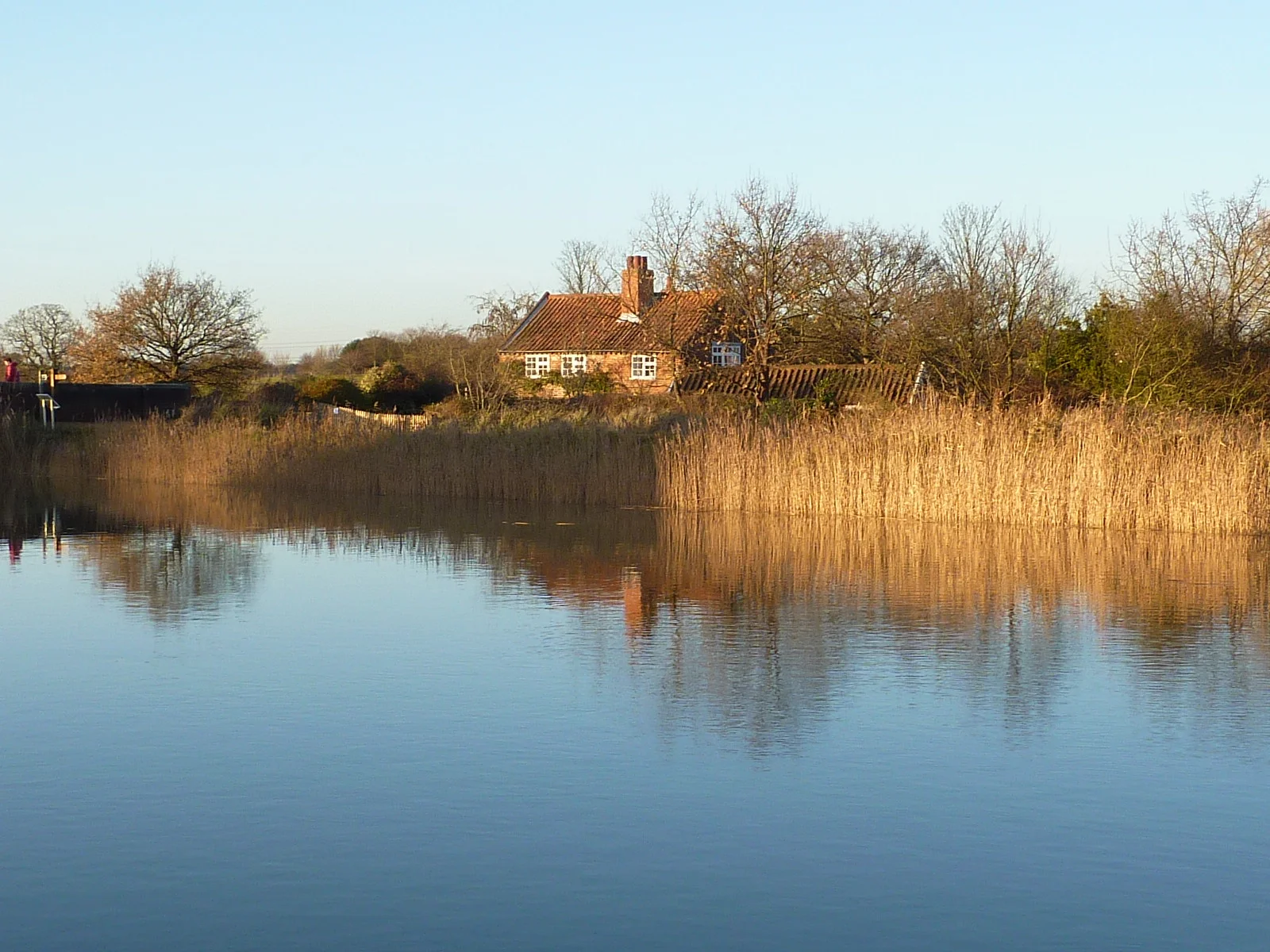The River Alde which runs by Snape Maltings
I had the great pleasure of singing at Snape Maltings earlier this month. After 7 years’ membership of Trianon Music Group choir I was in the fortunate position of performing something I had already done - so I could relax as one of the pieces was already ‘in the bag’!
Realisation had came quickly at the first rehearsal when I found I had very little recollection of the piece. Yes, it was 7 years ago and as it turned out I had sung a different part then but surely it wouldn’t be that tricky to pick it up again? Then came the angelic chorus bit and I knew I was doomed. This was not in the part I’d performed before - in fact on that occasion we had the beautiful, pure voices of a girls’ choir who sang these small sections beautifully. Now it was up to me and few others whose voices are a little more mature ....
At this point some of you may be recalling other, maybe non-musical, experiences where you have felt a similar level of dismay at being asked to do something you don’t feel quite up to. And perhaps you have a number of thought processes and choices:
1 Let’s just forget about it - I’m sure it will be Ok when the time comes
2 Maybe there’s some skilling up I need to do
3 I know - the others are probably better at it than I am, so it will be fine
4 Let’s see if I can try and understand the aspect of it I’m really concerned about and work on that
5 All of the above
Rehearsals came and went and the piece developed well. Memories of singing this requiem at the Chapel of the Royal Hospital School in Holbrook came back to me and I started to get into the piece. Apart from a few sticky bits, of course, but I’d soon pick them up. Option 1 was in full swing.
Option no 3 was rapidly destroyed in the following week’s rehearsal. “First sopranos - you’re flat!!”, barked the conductor when we were wafting beautifully through the high notes. No, surely not - nowhere to hide so now! Horror of horrors and now I had to take responsibility along with the others to make sure we got it right.
I’d realised a few months back that I needed some vocal coaching. My singing voice is OK - some people tell me it’s very nice (thank you) but at the end of a period of singing it was developing a roughness to it, which needed attention. So I talked about high notes with my singing tutor and in the run-up to the concert she focussed on exercises to help with this. Option 2 progressing - skilling up to ensure I could hit the notes was therefore under way.
The interesting learning point is that once I took action on one aspect of my shortcomings, I began to look more clinically at the other aspects which were causing me concern - how do I fit the latin text into the music smoothly? It’s one thing to see it on the page and quite another to have it pour accurately out of your mouth! Which sections of the music were the problem - in many cases it was timing. In this work there is a changing rhythm (known in the trade as the time signature - 3/4 to 4/4 to 7/8 for those of you who know about these things) so my strategy here was to mark up the bars where this was causing me problems to that I knew when to come in and what speed we were going at. It’s common practice but I’m not particularly diligent about doing it. Option 4 - focus on the problem areas - ticked. All good.
Then we had the rehearsal with the orchestra.
Just by way of explanation, choirs practise with a rehearsal accompanist who plays some of the orchestral part on the piano - even if you could find a big enough place to meet, it would be expensive and messy if we all learned everything together from scratch, so separating choir and orchestral rehearsals is a practical way of going about it. So the choir doesn’t hear the full orchestral part and the orchestra doesn’t hear the choir sing until that first, magical meeting.
At this stage it became clear that the magic wasn’t entirely present. Any remaining clinging on to option 1 - just to remind you that’s the one which says it will be all right on the night - evaporated! Most of the programme was good - however Durufle’s requiem is a moving, flowing piece with changing rhythms, different speeds with carefully timed entries and it was clear to most of us that some more work needed doing. Back to work on option 4 - focus on the troublesome bits.
It was a lovely, sunny morning for the Saturday pre-concert rehearsal at Snape Maltings. Arriving feeling not particularly bright but spectacularly early, 3 of us sat in the sun overlooking the river with our coffees. Then Martyn said : « So which are the bits you’re particularly worried about then, Izzy? ».
Sitting in the sunshine we pored over the music, checked over the bars I’d marked up and which were still tripping me up, sang through the words separately and together and noted the “entry points”. Even in singing it’s recognised that (occasionally!) you may get lost and need to be able to pick up where you are and join in again, so you need to identify the points at which you can do this. Some people call them “muster points”. Last minute work on option 2 - work on the difficult bits.
The concert that evening was wonderful and well attended. In the space at Snape Maltings the sound is truly magnificent and it’s a great joy to perform there. And as the final In Paradisum words (the dreaded high bits) came through well and wafted up in to the rafters of the old Maltings as we sang:
"May the angels lead you into paradise; may the martyrs receive you at your arrival and lead you to the holy city Jerusalem. May choirs of angels receive you and with Lazarus, once a poor man may you have eternal rest."
So should I have spent more time preparing for the concert? Interesting question. Most things which we want to achieve, whether they are a full-blown project or programme of work or something relatively small like taking part I’m a concert, are bounded by constraints - time, money, availability of others, competing demands. So the way we cope as human beings may be by denying, procrastinating, planning, rationalising, identifying the aspects which need work, sourcing or learning the necessary skills and support or indeed all of the above. And by a combination of these it will probably be all right on the night.
Note
For those who are interested, the latin, which we sang for the In Paradisum goes like this:
”In paradisum deducant te Angeli; in tuo adventu suscipiant te martyres, et perducant te in civitatem sanctam Jerusalem. Chorus angelorum te suscipiat, et cum Lazaro quondam paupere æternam habeas requiem.”
Trianon Music Group’s website is at www.tmg.org.uk
For more information about Snape Maltings visit https://snapemaltings.co.uk/
Izzy Ixer
Blue Pebble Coaching Ltd



